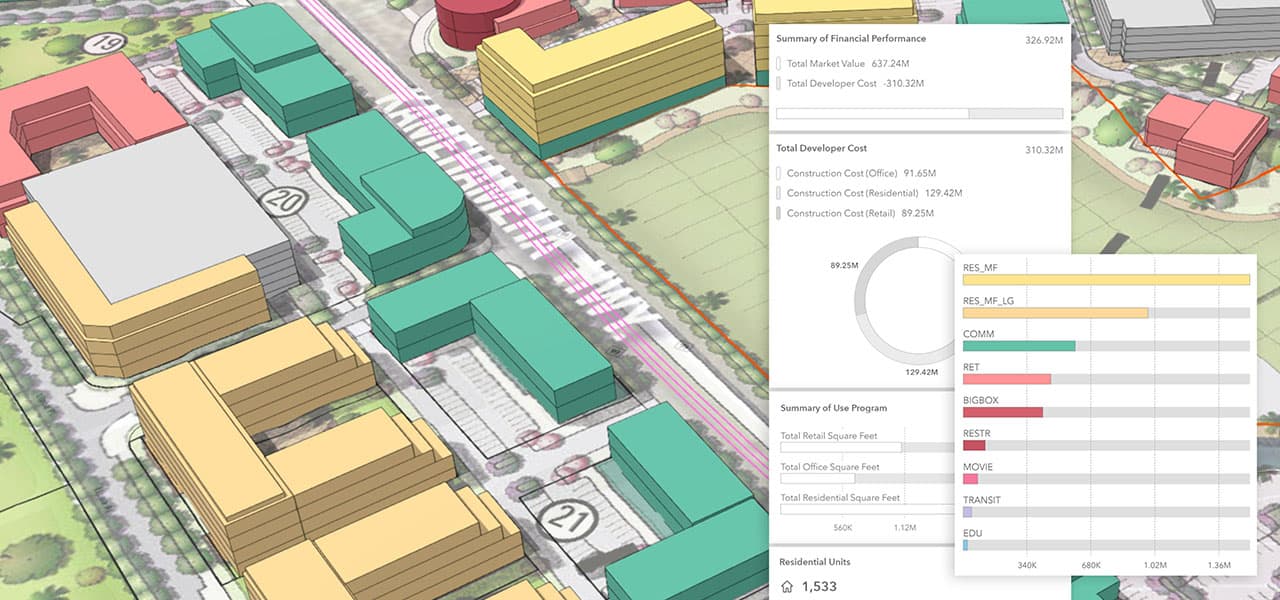
Planning for cities is no longer a niche; it's the force behind creating livable, sustainable cities. Governments, private sector developers, and nonprofits are betting big on smart growth planning, and skilled urban planners are in high demand. The numbers support it:
- The Bureau of Labor Statistics predicts a 4% increase in employment opportunities for urban and regional planners from 2026 to 2033.
- The World Bank Report states that more than 70% of carbon emissions come from cities, which is a major contributor to the dramatic surge in sustainable urban practice needs.
With this competitive labor market, it's all about being well prepared for your urban planning interview. This guide provides the technical skills you should be well-versed in as a planner, pay trends, and top-posed urban planning interview questions and answers to ensure you secure your desired career as an urban planner.
Understanding the Role of an Urban Planner

Urban planners blends creativity with analytics to solve urban development problems. Understanding this will help answer city planning interview questions and urban planning manager interview questions better. Here’s what the role typically includes:
Urban Planner Job Description
- Designing plans and programs for land use in towns, cities, and metropolitan areas.
- Conducting field investigations, surveys, and impact assessments.
- Reviewing site plans, zoning laws, and infrastructure proposals.
- Coordinating with public officials, engineers, architects, and developers.
- Ensuring development aligns with sustainability and community goals.
Qualification Prerequisites
- A bachelor's or master’s degree in urban planning, architecture, geography, or related fields.
- Certification from accredited bodies like the American Institute of Certified Planners (AICP) is a plus.
- Experience with urban planning software like ArcGIS, AutoCAD, or Urban Footprint. Check out our software courses to learn these softwares.
Technical Skills
- Proficiency in GIS and spatial analysis tools such as ArcGIS, QGIS, and UrbanFootprint.
- Familiarity with urban planner software like SketchUp, AutoCAD, Adobe Illustrator, and transport modeling tools.
- Ability to analyze and forecast data trends using Excel, R, or Tableau.
- Understanding of sustainability frameworks such as LEED ND and Smart Growth principles.
- Basic knowledge of urban economics, land valuation, and financial tools like TIF.
Soft Skills
- Strong communication and public speaking skills for community outreach.
- Analytical thinking with attention to legal frameworks and compliance.
- Collaboration skills for working with engineers, architects, and community stakeholders.
To Know the day to day job role and key softwares used by US Urban planners, checkout our comprehensive guide.
Urban Planner Pay Trends in the US
The urban planner pay in the United States varies widely based on experience, location, and job responsibilities. Here is an overview of the salary trend in the US:

Average Salary by Experience Level:
- Entry-Level Urban Planner Salary (0–2 years): $44,000 – $65,000/year
- Mid-Level Urban Planner Salary (3–5 years): $65,000 – $85,000/year
- Senior-Level Urban Planner Salary (6+ years): $85,000 – $119,000+/year
10 Most-Asked Urban Planning Interview Questions in 2026

Preparing for an interview can feel challenging. Here’s a helpful guide on how to prepare for an urban planning interview, featuring everything from entry level urban planning job interview questions to advanced ones, along with sample answers to help you build confidence and perform at your best.
Background and Experience
1. Can you walk us through your background and planning experience?
Approach: Discuss your academic background, any certifications, and highlight relevant experience in planning, GIS, or policy roles.
Sample Answer:
I hold a Master's degree in Urban and Regional Planning from [University], and I’m AICP-certified. I’ve worked on projects involving zoning reform and land use analysis. My last role at [Organization] involved working on a downtown redevelopment project where I led stakeholder engagement and coordinated with civil engineers and environmental experts.
2. How do you stay updated on urban planning trends and policy changes?
Approach: Mention subscriptions, professional memberships, journals, or conerences.
Sample Answer:
I subscribe to APA’s Planning Magazine, follow city planning blogs, and regularly attend regional planning conferences. I’m also active on urbanist forums and participate in local community board meetings to stay connected with on-the-ground issues.
3. Can you describe a planning project you worked on and your contribution?
Approach: Choose a specific project and discuss your role, tools used, and the impact made.
Sample Answer:
At [Company], I worked on a TOD plan. I used ArcGIS for mapping, led the housing needs analysis, and managed community outreach. The plan was adopted and led to new mixed-use zoning approvals.
Technical Questions
4. What urban planning software are you familiar with? How do you decide what to use?
Approach: Mention tools like GIS, AutoCAD, or zoning platforms, and how project needs drive your choice.
Sample Answer:
I’m skilled in ArcGIS, QGIS, UrbanFootprint, and SketchUp. For mapping and demographic analysis, I prefer ArcGIS. For visualizing site plans, I use SketchUp. The software I choose depends on the scale of the project and data availability.
5. What’s your approach to public engagement in planning projects?
Approach: Talk about methods used to gather community feedback and how it shaped planning outcomes.
Sample Answer:
I prioritize inclusive outreach, using town halls, surveys, and online tools to gather input. On a recent park redevelopment project, we incorporated over 400 community responses that directly influenced design decisions, such as adding walking trails and playgrounds.
6. How do you analyze zoning conflicts or policy barriers during a project?
Approach: Demonstrate understanding of code analysis and negotiation strategies.
Sample Answer:
I begin with a thorough zoning code review and compare it against proposed site plans. If conflicts arise, I consult with legal advisors or city officials to seek variances or code amendments. I also document all interactions for transparency.
Industry Protocol and Strategy
7. What are the key elements of a comprehensive city plan?
Approach: Mention land use, transportation, environment, housing, and economic development.
Sample Answer:
A comprehensive plan should include land use frameworks, transportation networks, housing strategies, environmental protection, and economic development goals. It must also include an implementation schedule and public participation process.
8. How do you ensure equity and sustainability in urban planning?
Approach: Highlight your understanding of social and environmental justice in city planning.
Sample Answer:
I conduct equity assessments to ensure resources are distributed fairly, especially in underserved areas. I integrate green infrastructure and promote mixed-income housing to create resilient, inclusive communities.
Vision and Aspirations
9. Where do you see the future of urban planning in the next five years?
Approach: Touch on smart cities, climate resilience, and AI in planning.
Sample Answer:
Urban planning is moving toward data-driven design, climate-resilient infrastructure, and inclusive zoning policies. I see wider adoption of AI for traffic optimization and predictive planning, along with stronger community-based planning practices.
10. What would your contribution be to our city planning department?
Approach: Be specific, show leadership, innovation, and dedication to outcomes.
Sample Answer:
I bring a strong mix of technical know-how and stakeholder coordination. I aim to develop data-backed, community-informed plans that align with our city’s growth vision. I also enjoy mentoring junior planners and contributing to team efficiency.
Suggested Read - What does a Urban Planners do? Job Roles, Key Skills & Softwares
Conclusion
Whether you’re stepping into your first role or aiming for a leadership position, knowing how to answer the most common urban planning interview questions is essential. Upskilling with future-ready tools like the BIM Professional Course for Civil Engineers by Novatr equips you with the skills to lead innovative, tech-driven urban design projects.
For more expert insights, practical resources, and career-boosting tools, visit our resource page and take your next big step in urban planning.
Was this content helpful to you



.jpg)



.png)


.png)